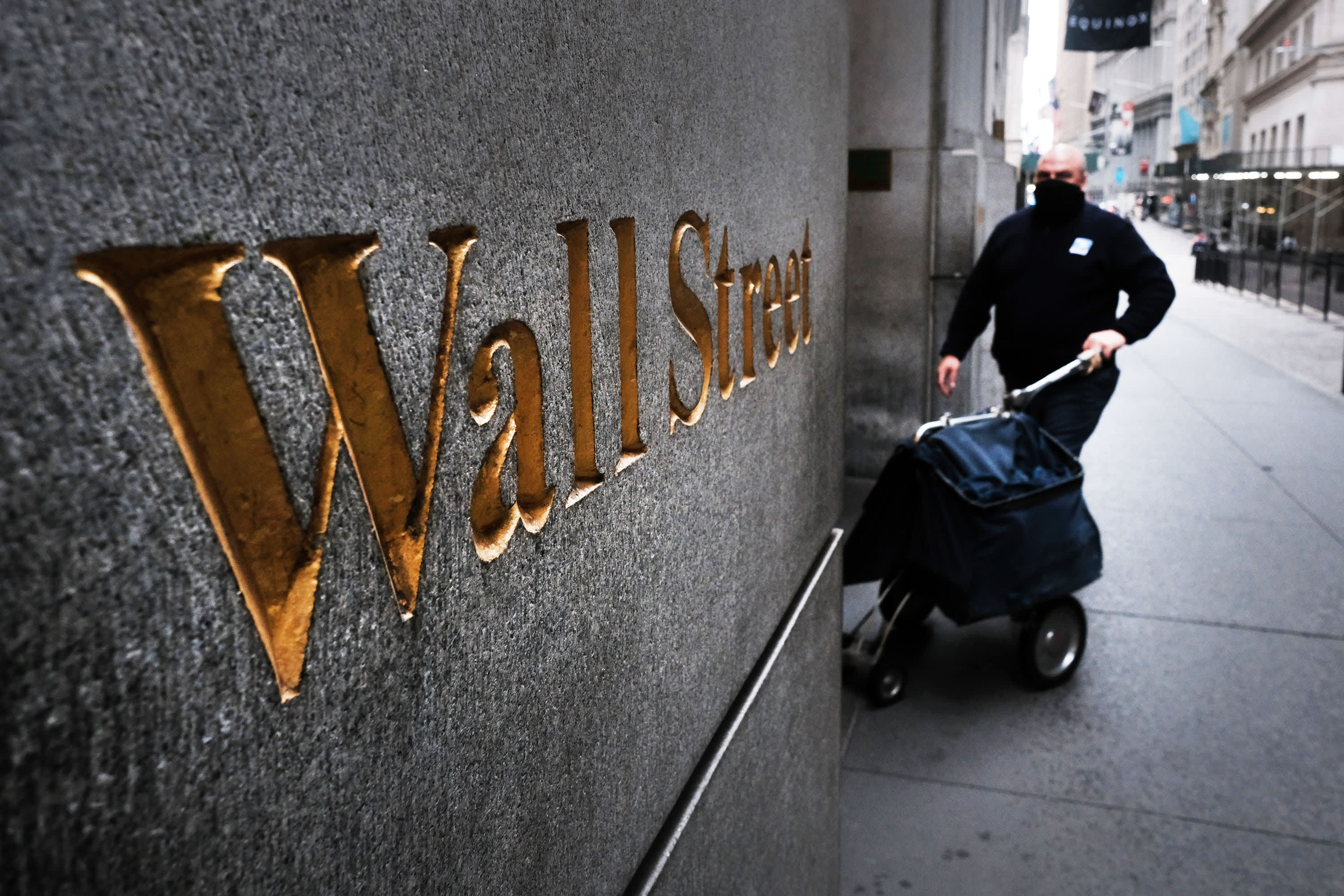This post was originally published on this site

How is Wall Street positioned for the election? Even Wall Street isn’t sure.
For most of October, “buy the stimulus trade” was the main idea on Wall Street. After all, polls showed odds were good for a Biden victory that would likely entail some kind of large-scale stimulus. Investors were buying small-cap stocks, infrastructure plays, and alternative energy sectors like solar, wind and other clean energy ETFs.
Then Covid came back with a vengeance. Suddenly, there was concern a renewed outbreak and its impact on earnings would overwhelm any benefits from stimulus.
And with concerns around lower earnings, there was a new wrinkle: tech valuations.
Who could blame traders for being worried about tech valuation? Apple trades for 30 times 2021 earnings. It was trading at 20 times earnings in April. Historically, it has traded for 15 to 20 times earnings. When Tim Cook declined to provide any guidance, Wall Street shuddered.
And yet with Apple, Amazon and Facebook all down more than 5% last week, much of the excess is starting to be worked off.
“Maybe this crazy market is not just about a tech relative revaluation but a ‘simultaneous’ tech and broader market relative revaluation,” Jim Paulsen, chief market strategist at Leuthold, told me. What you see recently is “tech leading the sell-off, but broader plays like cyclicals, smalls and even energy outpacing.”
Indeed, while the “stimulus trade” was wounded last week, most traders believe it still has legs.
“If there is a theme that still works, it’s stimulus,” Alec Young, chief investment officer at Tactical Alpha told me. “There are macro reasons to be positive. Stimulus is coming, a vaccine is coming, and the removal of the election uncertainty is going to be a big positive.”
With the S&P 500 down 3% on the month, stocks that would benefit from stimulus still handily outperformed, even with worries over a Covid outbreak.
The “stimulus play” in October
- S&P Small Cap up 3%
- Solar Stocks up 5%
- Metals/Mining up 5%
Infrastructure plays had a particularly strong month:
- Fluor up 28%
- Martin Marietta up 18%
- Granite Construction up 13%
- Tetra Tech up 6%
- Vulcan Materials up 6%
There are other indications the market has faith much more stimulus is coming. Bond yields, for example, are up and this has created a big rally in banks. In a month with the S&P down 3%, bank stocks were up 12%. “Bonds were down because of concern over the amount of debt that is going to have to be issued to fund the stimulus programs,” Young told me.
Commodities are also holding up, likely on hopes that China has turned the corner. Oil, for example, is down but copper is still up for the month.
Is the macro overlay really that bad, or is this more of a tech valuation reset? For Paulsen, the relative outperformance of cyclical stocks is enough reason for him to remain optimistic: “Investors are saying tech can’t go much higher because it is so expensive, but they are also saying broader market plays can’t go much lower because they are so (relatively) cheap.”
Still, scratch the surface and most traders seem nervous, particularly about the extent of the virus outbreak. “Anyone who tells you they have a lot of confidence is lying,” Young told me.
There’s even doubt that a truly robust stimulus program will be coming, especial should the end result be a Democrat in the White House and Republicans in control of the Senate.
With “the election outcome still uncertain, the market as revealed in recent volatility — appears to be preparing to re-price itself for the possibility of a somewhat less stimulative regime,” Fidelity Investment’s Jurrien Timmer wrote in a note to clients on Sunday.
Subscribe to CNBC PRO for exclusive insights and analysis, and live business day programming from around the world.






